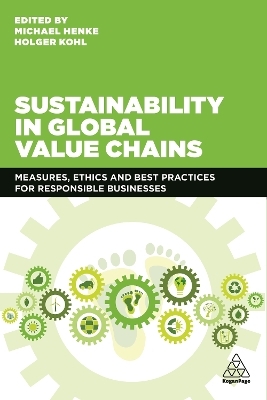
Sustainability in Global Value Chains
Kogan Page Ltd (Verlag)
978-1-78966-262-7 (ISBN)
Sustainability can create greater efficiency and cost savings in the supply chain. Supply chains, which are more complex and global than ever before, are full of both risks and opportunities. The risks range from inconsistent or poor quality, supply disruptions and health and safety concerns, to corruption. Businesses face pressure to adopt sustainable supply chain practices from various stakeholders and motivations typically come from one or more of four sources: customers, compliance, costs, competitive advantage. Sustainability in Global Value Chains is the guide to understanding all aspects and approaches of sustainable supply chains using in-depth research from leading academics from sixteen different universities.
Sustainability in Global Value Chains focuses on how to make supply chains sustainable, with an emphasis on new technologies and digitization. The research featured covers topics such as KPIs in production and supply chains, the role of standards, blockchain technology and algebraic models. This comprehensive book presents real world issues, problems in implementing sustainability in the supply chain and examples of best practice.
Michael Henke is Chair of Enterprise Logistics at TU Dortmund University, Director of Enterprise Logistics, IML Dortmund, Professor for Strategic Sourcing and Procurement at Louvian School of Management, Paris and Professor for Supply Chain Management at Lappeenranta University of Technology, Finland. Holger Kohl is Director of Corporate Management at Fraunhofer IPK (Fraunhofer Institute for Design and Technology) and Head of Department in Sustainable Corporate Development at TU Berlin.
Section - 01: Introduction – About the book;
Section - 02: The importance of supply chain management for sustainability in global value chains;
Section - 03: Interdisciplinary research work in the field of SSCM;
Section - ONE: Ethical principles of sustainable value chain management;
Section - 04: Start-ups as relevant supporters and initiators of sustainability attributes in global value chains of the future;
Section - 05: Global value chain sustainability governance – Implications for management research and practice;
Section - TWO: Measuring sustainability in global value chains;
Section - 06: Sustainability controlling in integrated value chains;
Section - 07: Measuring diversity among competing supply-value chains;
Section - 08: Sustainable buyer behaviour in value chains – Determinants and marketing implications;
Section - 09: Tactical planning measures for sustainable and efficient international transportation networks;
Section - THREE: Actions to continuously improve sustainability in global value chains;
Section - 10: Biomimetic principles for improved organizational information processing – Toward sustainable supply chains;
Section - 11: (How) Can research in the field of sustainable supply chain management become more forward-looking and future-shaping?;
Section - 12: Success factors of voluntary sustainable supply chain management sector initiatives;
Section - 13: An institutional framework of urban logistics – Policy options and the role of the government;
Section - 14: Index
| Erscheinungsdatum | 27.01.2021 |
|---|---|
| Verlagsort | London |
| Sprache | englisch |
| Maße | 157 x 235 mm |
| Gewicht | 475 g |
| Themenwelt | Sachbuch/Ratgeber ► Beruf / Finanzen / Recht / Wirtschaft ► Wirtschaft |
| Wirtschaft ► Betriebswirtschaft / Management ► Logistik / Produktion | |
| Wirtschaft ► Betriebswirtschaft / Management ► Marketing / Vertrieb | |
| ISBN-10 | 1-78966-262-1 / 1789662621 |
| ISBN-13 | 978-1-78966-262-7 / 9781789662627 |
| Zustand | Neuware |
| Informationen gemäß Produktsicherheitsverordnung (GPSR) | |
| Haben Sie eine Frage zum Produkt? |
aus dem Bereich


